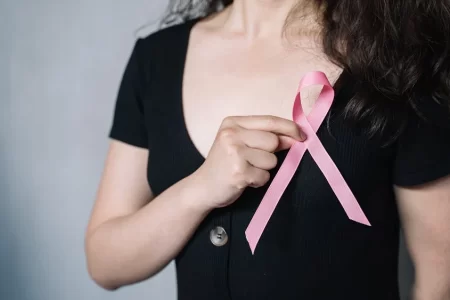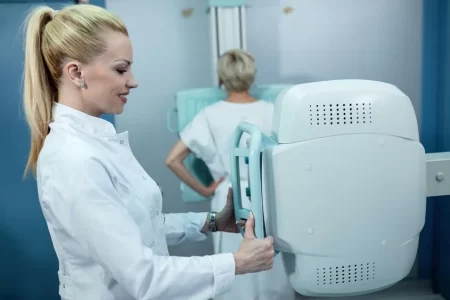Early Signs and Symptoms of Breast Cancer
- Updated on: Jul 29, 2024
- 3 min Read
- Published on Feb 21, 2021

Early Symptoms of Breast Cancer
Breast cancer, one of the most common cancers affecting women worldwide, is a disease where cells in the breast grow out of control. While the thought of breast cancer can be daunting, early detection plays a crucial role in successful treatment, making awareness of its early signs and symptoms paramount.
The first symptom of breast cancer that most women notice is a lump in their breast. However, most breast lumps are not cancerous. As many as 90% of them are non-cancerous. But it is important to check them at an early stage so as to prevent cancerous growths. You should contact your doctor if you notice any of the following symptoms that may be indicative of breast cancers.
Breast Cancer Survival Rate: Is Breast Cancer Curable
Breast Cancer Signs and Symptoms
Sometimes there are no symptoms of breast cancer, particularly when it is in its early stages. However, it is better to find the cancer earlier. The earlier it is detected, the easier it is to treat it. This is the reason why doctors recommend early detection and screening. Below is the listing of some symptoms that you should be aware of. However, it is important to note that because you have one or more symptoms does not mean that you have the disease. But if you notice any of these symptoms, call your doctor and book an appointment.
- A new suspicious lump or a thickened area or tissue in one or both breasts that was not present earlier
- Pain in the lump: though pain may not necessarily occur. A lump without a pain may still be an indication of breast cancer.
- A change in the size or shape of either of or both the breasts
- Discharge from the nipples
- Swelling in any of the armpits or underarm lumps: Breast tissue can extend under the arms and the cancer can spread through the lymph nodes under your arms. This may require urgent attention.
- Rashes on or around the nipples
- Changes in the appearance of your breasts
- Dimples in the skin of the breast
- A texture similar to that of orange around the nipples
- Changes in the colour of the breast or discoloration
- Irritation
- Redness
- Any thickening of the skin of the breast
Breast cancer can spread to other parts of the body too. If it spreads to other parts, it is called metastatic breast cancer, or stage 4 breast cancer. Generally, metastatic cancer is not curable. However, it is possible to manage breast cancer when it spreads. In such cases, the symptoms may vary based on the organs affected. You can read about the symptoms of the metastatic breast cancer here.
Screening and Diagnosis of Breast Cancer
Regular screening is vital for early detection. This includes breast self-exams, clinical breast exams, and mammograms. If any abnormalities are found, further diagnostic tests such as a biopsy, MRI, or ultrasound may be required.
Things Patients Experience Immediately After Breast Cancer Diagnosis
Next Steps After Symptom Identification
If you notice any of these symptoms, consult a healthcare provider immediately. While it’s natural to feel anxious, remember that not all lumps or changes result in a breast cancer diagnosis. Professional guidance and support are key during this time.
Risk Reduction and Early Detection
Lifestyle changes like maintaining a healthy diet, regular exercise, and limiting alcohol intake can help reduce the risk of breast cancer. Knowing your family history and understanding your personal risk factors are also crucial.
What to Ask a Doctor After Noticing Early Signs of Breast Cancer
When consulting with your doctor about breast cancer, it’s crucial to ask comprehensive questions to understand your situation better.
Start by inquiring about the specific type and stage of breast cancer, if diagnosed, and what that means for your treatment options. Ask about the benefits and risks of each treatment, including surgery, chemotherapy, radiation, or hormone therapy. It’s also important to discuss the likelihood of recurrence and what steps you can take to reduce this risk. Inquire about genetic testing if you have a family history of breast cancer.
Additionally, ask about lifestyle changes you can make to support your treatment and recovery, and whether you should consider any modifications to your diet or physical activity. Finally, don’t hesitate to discuss the emotional impact of a breast cancer diagnosis and ask for recommendations for support groups or mental health services that can assist you during this time.













1 Comment
Wonderful goods from you, man. I’ve understand your stuff previous to and you are just too fantastic. I actually like what you have acquired here, certainly like what you are saying and the way in which you say it. You make it enjoyable and you still take care of to keep it sensible. I can’t wait to read much more from you. This is really a terrific web site.